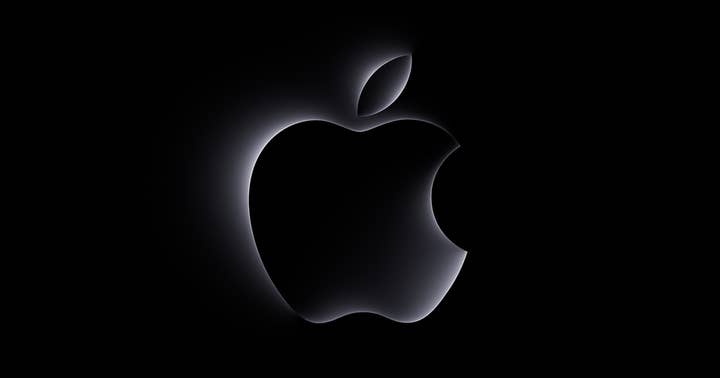From Epic to the EU, Apple is all about the drama | Opinion
Pulling Epic’s developer account is the latest twist in a melodrama where Apple seems content to play the villain – but the European Commission is a much more dangerous foil
Sign up for the GI Daily here to get the biggest news straight to your inbox
Looked at from the perspective of the games industry, it’s easy to imagine that this week’s new twists and turns in Apple’s legal saga are all about its endless feud with Epic – a corporate slapfight which is now reaching levels of acidic pettiness that give the most melodramatic Eighties-era TV serials a run for their money. (If you’d like to go into the weekend with the mental image of the Tims, Cook and Sweeney alike, dressed to kill in Dynasty-style shoulderpads and gloriously permed wigs and shooting daggers at one another across a cocktail party; well, you’re welcome. Or, sorry? Or perhaps both.)
On the eve of the European Union’s new rules forcing Apple to open up the iOS software ecosystem coming into force, the company announced that Epic’s developer account was being shut down, as it had proven itself to be untrustworthy in the past and thus allowing it to run a third-party app store would be an unacceptable risk. Oh, the shade of it all! That’s the kind of killer line that lets you end an episode on a lingering shot of Cook’s smirk, confident that the audience will tune in next week to see how Sweeney will get his own back. Seriously though – fetch them their wigs and gowns, because forcing the two billionaires into a Dynasty re-enactment would be both more entertaining and more impactful than the actual tiresome feud we’ve been enduring for the past couple of years.
Both sides have tried to marshal support from consumers for their stances; Epic talks a big game about consumer freedom to choose what software they run and where they get it from, while Apple, somewhat less successfully, makes an argument about consumers having the right to choose a more locked-down and secure platform. Neither side actually gives a monkey’s uncle about consumer freedom, of course; this is a dispute over fees that change hands between the companies, and is purely a question of which company gets to keep which percentage of the money consumers are paying.
Epic wants the freedom not to pay Apple’s tolls – ideally, in its view, by forcing Apple to open up iOS entirely so that it can run its own version of the App Store and fully bypass Apple’s app ecosystem, so it keeps pretty much all its revenue. Apple wants… not that. It wants people who distribute software to customers on iOS to pay a percentage of revenue to Apple for maintaining the ecosystem in which they do so. To be entirely clear, in both of these scenarios consumers are still paying the same amount; the question is about who keeps the money, not how much consumers pay. If you believe that pricing for consumers would actually drop if Apple was no longer able to enforce its percentage, I have an absolutely lovely bridge for sale that you’re sure to be interested in.
The European Commission is locked in disputes with Apple on a number of fronts and it’s here, rather than in the Epic melodrama, that the future of this business model is going to be hammered out
Ultimately, though, it’s hard to argue with the contention that Epic’s position is more sympathetic – I think we can generally agree that the people who actually make stuff should keep as much of the revenue from that stuff as is reasonable, rather than having a large part of their revenue whittled away on tolls, fees, and middlemen. We can probably also agree, though, that Apple does provide significant value through its maintenance of the iOS ecosystem – but there’s a strong argument that it does this to provide value to its customers, the consumers who buy Apple devices, and shouldn’t be double dipping by then charging a large fee to app developers and service operators (although some fee to cover the actual costs involved in certifying and distributing software does seem reasonable).
That’s more or less the position that the European Commission has taken on Apple’s business model – but the ways it’s chosen to address these concerns are complex, untested, and riddled with loopholes. Consequently, the EC has ended up on a collision course with Apple; it’s locked in disputes with the company on a number of fronts, and it’s here, rather than in the Epic melodrama that is really only a side-show, that the future of this business model (and of one of the world’s biggest corporations) is going to be hammered out.
The EC is chipping away at Apple’s dominance in various different ways. It has fined Apple billions over anti-steering provisions – rules for iOS apps which forbade developers from pointing consumers to alternative purchase or subscription options that were available outside the app. In theory even more impactful, though, is the entry into force of the Digital Markets Act earlier this week – a new law which defines tech companies of a certain size and scope as “gatekeepers” who have responsibilities to maintain the openness and competitiveness of their platforms in specific ways.
The DMA has forced Apple to open up iOS to third-party app stores, which would allow people to install software via marketplaces not directly controlled by Apple. On paper, that’s the ultimate solution to the dispute Epic and other companies have with Apple; they can build their own storefronts and distribute software to iOS users through them, bypassing the App Store entirely. That’s great for those companies – although arguably a raw deal for Apple’s actual consumers (again, not a single iota of this dispute, from either side, is about making things better for consumers), who paid a premium for a platform that’s known to be relatively simple and secure, and may now face having to install multiple app stores from weird companies they’ve never heard of just to access the games and other software they want.
In practice, though, it’s an unholy mess not just for consumers, but also for the companies involved. The EC’s rules allow Apple to continue to charge much the same fees for apps installed via third-party stores, because the Commission declined to tackle the actual problem – the lack of oversight on the fees being charged by dominant gatekeepers – and instead went for some half-assed “the market will fix it” solution which falls short of actually exposing Apple’s fees to any market competition.
In other words, the EC’s rules are the worst of all possible worlds – reducing Apple’s ability to maintain oversight of its platform, potentially creating confusion and security risks for consumers, but not actually introducing competition on fees or giving developers workable alternatives to the App Store’s business model.
Shutting down Epic’s developer account just before it could launch its app store is another petty move which gives Apple that cartoon villain aura
There’s a real question here, I think, about the EC’s competence to regulate this kind of situation. The Commission generally does a fantastic job of regulating on behalf of consumers’ interests – consider examples like the elimination of roaming fees within the EU, or more recently forcing Apple to drop the proprietary Lightning connector in favour of the USB-C standard on its phones. Fining Apple for anti-steering practices falls broadly under that umbrella, since those practices were genuinely impacting on consumer choice.
Regulating the relationships between big businesses, thousands of metres over the head of actual consumers and with precious little impact on their day-to-day lives, however, is a totally different beast, and the Commission seems to have made an absolute mess of it – perhaps because it’s a realm in which they should never have involved themselves in the first place, unless there was clear evidence of actual monopolistic behaviour that warranted an anti-trust investigation of Apple.
Yet some aspect of the Apple / Epic melodrama seems to have seeped into this much larger story, because god help us if Apple’s relationship with the European Commission doesn’t seem to be turning into a similar snarky feud. Apple has fought the EC’s rules tooth and claw since they were first mooted, and its preparations for the introduction of the DMA have had a strong whiff of malicious compliance about them; every move to obey the technical letter of the law is accompanied by a poison pill in the form of some other change to App Store policy or developer accounts that renders the law itself worse than useless.
Some of these changes have the air of a cartoon villain about them; users who travel outside the EU won’t be able to update their third-party apps, for example – an extremely petty and entirely unnecessary move which undermines Apple’s claim to be oh-so-focused on their users’ security (if that were true, it wouldn’t enact a policy restricting app updates, which are often designed to patch security holes). Shutting down Epic’s developer account just before the company could launch its planned third-party app store is another petty move which gives Apple that cartoon villain aura.

Ironically, it’s impossible to deny that Apple has a point – Epic did breach contract in protest at Apple’s policies in the past, and everything about the tenor of Tim Sweeney’s comments in recent months suggests that the company would be very willing to do so again, which would potentially cause all manner of trouble if they were running an app store at the time, since innocent third-party developers would be caught in the resulting crossfire. However, the way Apple has gone about the whole process – and the timing of the account closure – leaves them looking thuggish and recalcitrant.
Apple has fought the EC’s rules tooth and claw, and its preparations for the DMA have had a strong whiff of malicious compliance about them
All of this may be spurring a fighting attitude in Brussels. The Commission, having already slapped a €1.8bn fine on Apple less than a week ago, seems to be in a pugilistic mood over this – and while the wheels will grind forward very very slowly, especially if material changes to the DMA are required to rein in Apple’s behaviour and achieve the EC’s original goals, you do have to wonder if it’s smart for Apple to be seen to be openly trying to piss off the very powerful regulatory body of the world’s largest economic bloc.
There’s a general dissatisfaction in the EC at how tech companies have responded to the DMA; the comparison between the perceived enthusiasm of many of these firms to ask how high they should jump when Beijing barks orders at them, versus their uncooperative attitude and attempts to find every possible loophole when Brussels imposes some oversight, has probably not escaped notice.
In this broader drama, Epic is just the occasional recurring character who pops in to stir things up a little; the real actors are Apple, the European Commission, and to some extent other tech giants like Google. If the DMA does not have the impact the EC hoped for, it’s not going to just give up on regulating the tech giants – especially if it’s felt that those companies have been more or less thumbing their noses at the very notion of Europe regulating their business practices from the outset.
Third party app stores on iOS in their current incarnation are likely dead on arrival – but this deepening animosity between Apple and the world’s most important regulatory body will be a factor that continues to have an impact for years to come.
Sign up for the GI Daily here to get the biggest news straight to your inbox

